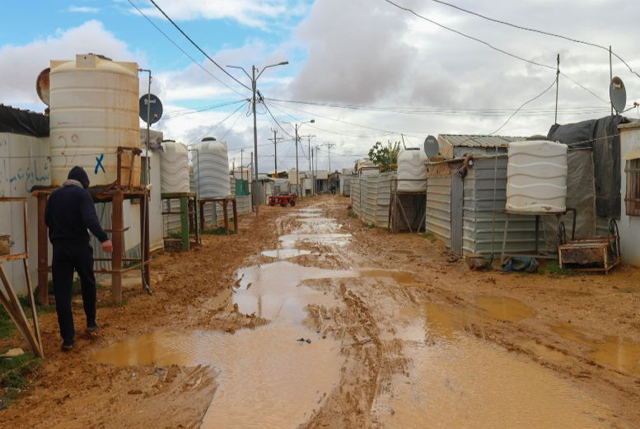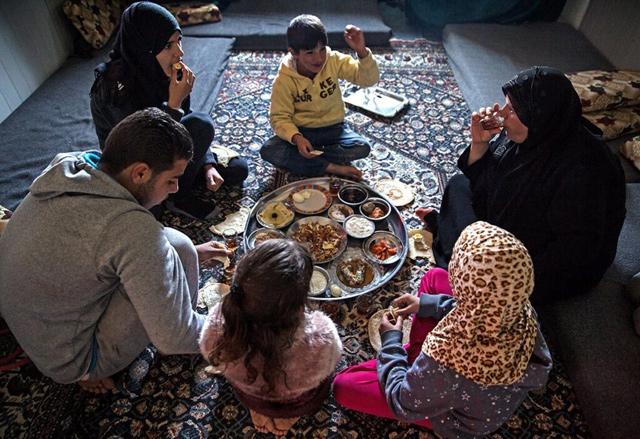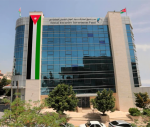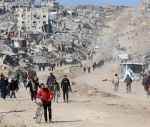You are here
Syrian refugees pushed further into poverty amid UN aid cuts
By Mays Ibrahim Mustafa - Aug 27,2023 - Last updated at Aug 27,2023

The Food Security in Numbers report for Q1 of 2023, issued by the WFP, showed that the average amount of debt among refugees in both camps and host communities in Jordan has increased 25 per cent over the past year (Photo courtesy of UNHCR/Daham Alhamad)
AMMAN — Abu Rami, a Syrian refugee living in Amman, stopped receiving cash assistance from the World Food Programme (WFP) in July. Holding over JD2,000 in debt, the father of three is currently struggling to make ends meet.
Abu Rami’s wife has cancer, which has placed an additional burden on his family’s finances.
“I am drowning in debt… I barely make enough money to keep a roof over our heads and pay for food and water,” he told The Jordan Times.
Jordan hosts the second-highest share of refugees per capita in the world, with over 760,000 refugees, predominantly from Syria, registered with UNHCR, the UN Refugee Agency.
Abu Rami, not his real name, is one of thousands of Syrian refugees in Jordan impacted by aid cuts due to WFP funding constraints.
In September 2022, the monthly cash assistance received by his family of five was reduced from JD75 to JD50. This July, it was cut completely.
The 46-year-old tailor had to quit his job after his wife was diagnosed with breast cancer over a year ago, and he currently works from home.
“She has doctors’ appointments every other day, and the treatments leave her feeling exhausted all the time. That is why I work from home, to be with her and take good care of her,” he said.
As the family fell on hard times, Abu Rami and his wife were forced to make the hard decision to part with their wedding rings, selling them for cash to cover basic household needs.
The family of Samah, another Syrian refugee residing in Amman, is also among those struggling to cope with aid cuts.
Samah, not her real name, is a homemaker and a mother of three. Her family used to receive JD60 in food assistance every month.
“It was not much but it did help cover some of our needs, and it was something to rely on every month… it is better than nothing,” she told The Jordan Times.
Samah’s husband, who is the family’s main provider, is a carpenter.
“He never says no to any job he gets, no matter how low the pay is. But sometimes months go by and not one dinar enters our house,” she said.
Majority of refugees hold debt
Samah’s family currently manages “to get by” by borrowing money from relatives and acquaintances.
“But expenses never end; there are always bills to pay and debts to repay,” she added. “It feels like we are trapped in an endless cycle of debt; we borrow money to survive then work to pay it back.”
A recent UNHCR report on the socio-economic situation of refugees in Jordan, during the first quarter (Q1) of 2023, showed that nearly nine out of ten refugee households were in debt.
The Food Security in Numbers report for Q1 of 2023, issued by the WFP, showed that the average amount of debt among refugees in both camps and host communities in Jordan has increased 25 per cent over the past year.
‘Unprecedented severe funding shortfall’
In July, the WFP reduced its assistance by one-third for all beneficiaries in host communities, affecting 346,000 individuals, according to the most recent WFP Jordan Country Brief report.
Assistance received by all 119,000 beneficiaries living in camps has been reduced by one-third starting from August, the WFP Brief said.
Moreover, the report showed that the overall number of refugees eligible for assistance will decrease by nearly 12 per cent; from 460,000 to around 410,000 beneficiaries by September due to “an unprecedented severe funding shortfall”.
“We are deeply concerned about the potential deterioration of families’ food security. But as funding dries up, our hands are tied,” said WFP Representative and Country Director in Jordan Alberto Correia Mendes in a statement issued on July 18.
Despite prioritising the poorest families and gradually excluding approximately 50,000 individuals from assistance, the report showed that the WFP still requires a total of about $30 million to continue providing assistance “at reduced levels” from October to December 2023.
Related Articles
AMMAN — A lack of inclusive learning programmes, the high costs of speech therapy and a lack of respect from society led one family with a c
AMMAN — The United Nations World Food Programme (WFP) in Jordan is concerned about its funding situation with regard to providing support to
AMMAN — The World Food Programme (WFP) was forced to alert 110,000 Syrian refugees that their WFP assistance will end in October, Alia Khafa

















